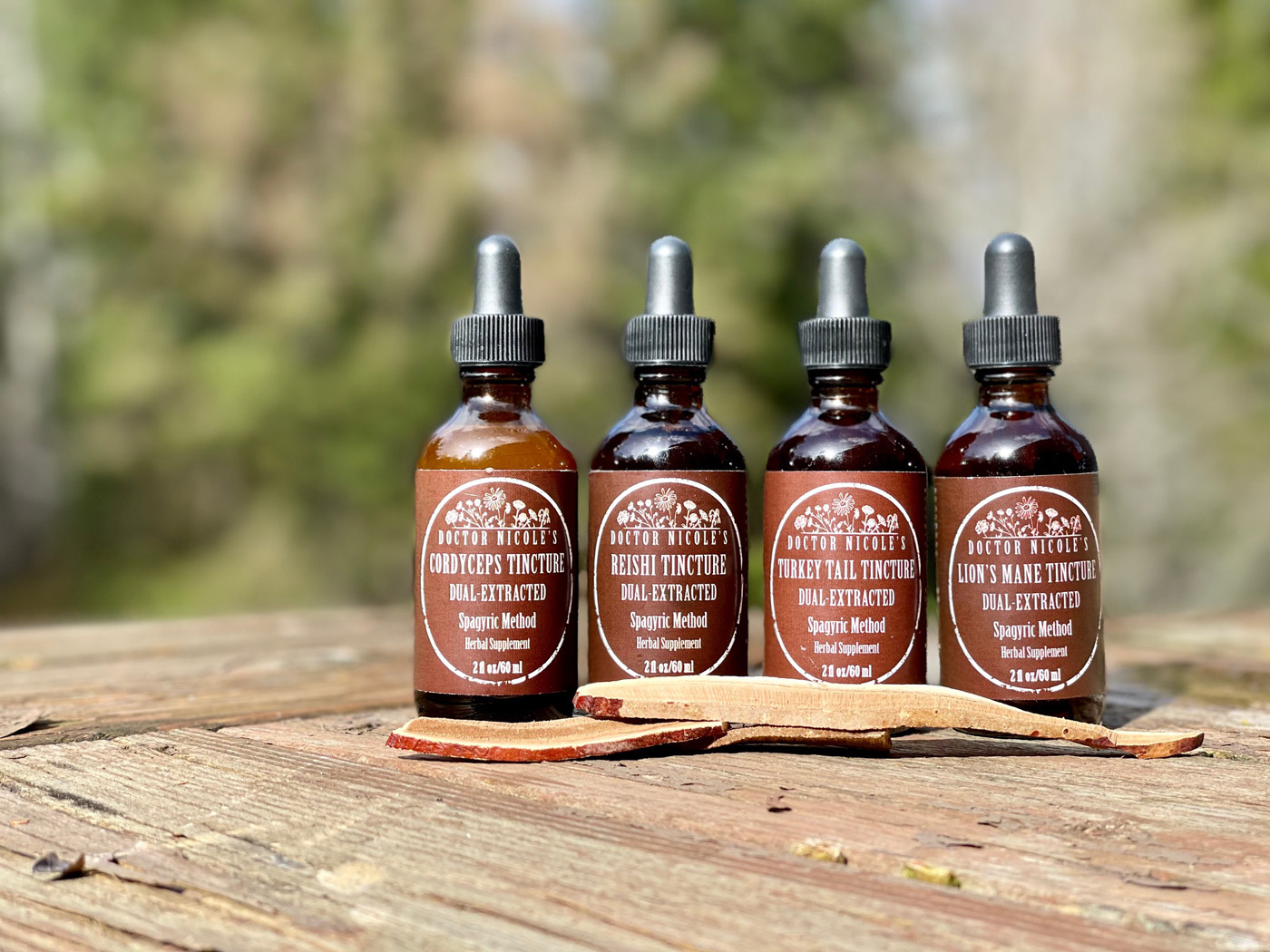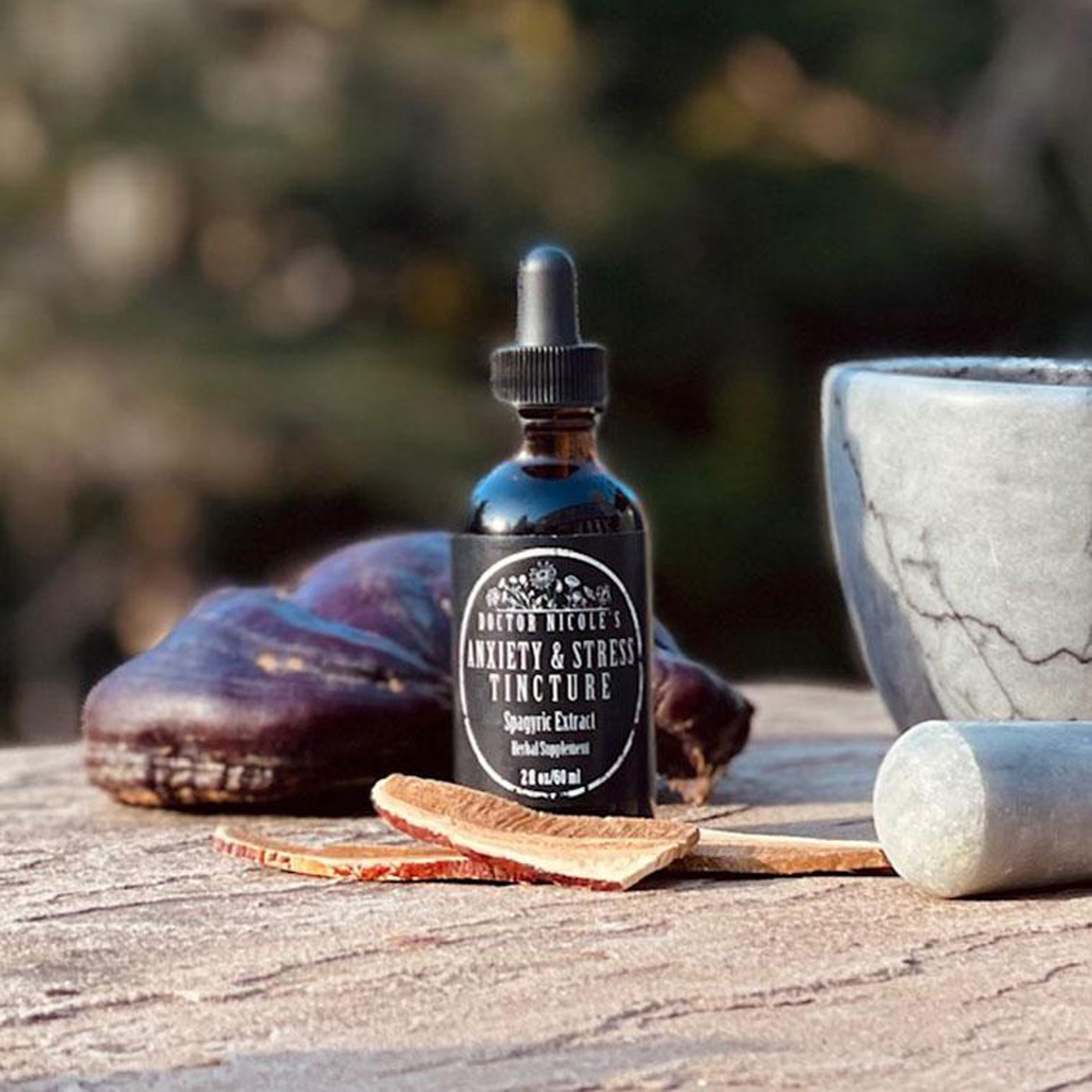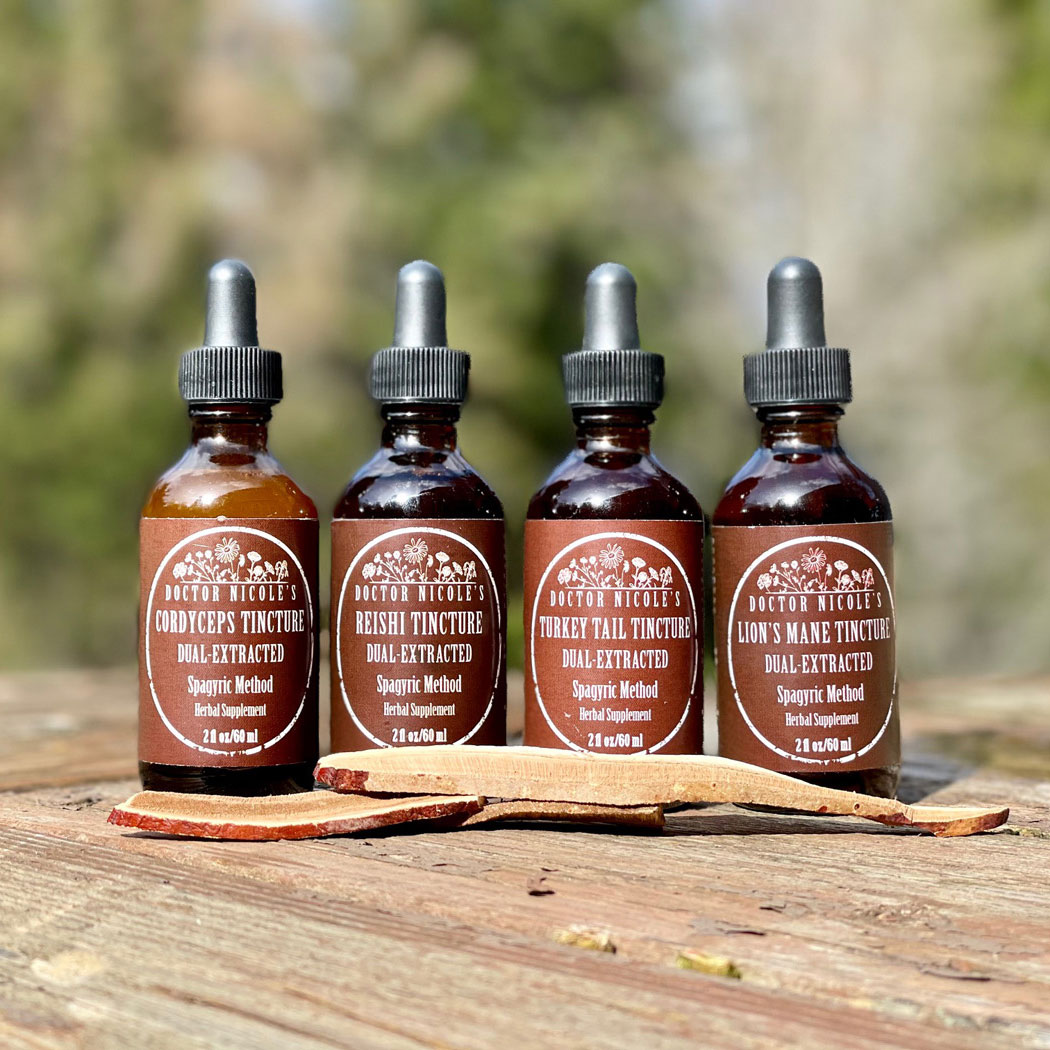The Root Cause of Neurological Conditions
The basal ganglia is an area of the brain that we typically do not give much thought to unless it becomes dysfunctional and impacts our movement or emotional and mental wellbeing. It is most famously known to be involved in the development of Parkinson’s disease, although it is also associated with restless leg syndrome, anxiety, mood disorders, insomnia, ADHD, autism, and much more. When this group of specialized cells is not functioning normally, it interferes with dopamine production and GABA signaling, leading to a cascade of neurological disorders, along with learning and emotional regulation challenges.
There are a variety of reasons as to why the basal ganglia can become damaged, including genetics, chronic stress, traumatic brain injury, dietary factors such as gluten, autoimmunity, oxidative stress, viral infection, toxins, and issues with glutathione production. If you are concerned this important area of the brain has been compromised, or you are already contending with a disease associated with it, research has shown several natural approaches can minimize or prevent neurological harm and treat the underlying causes.
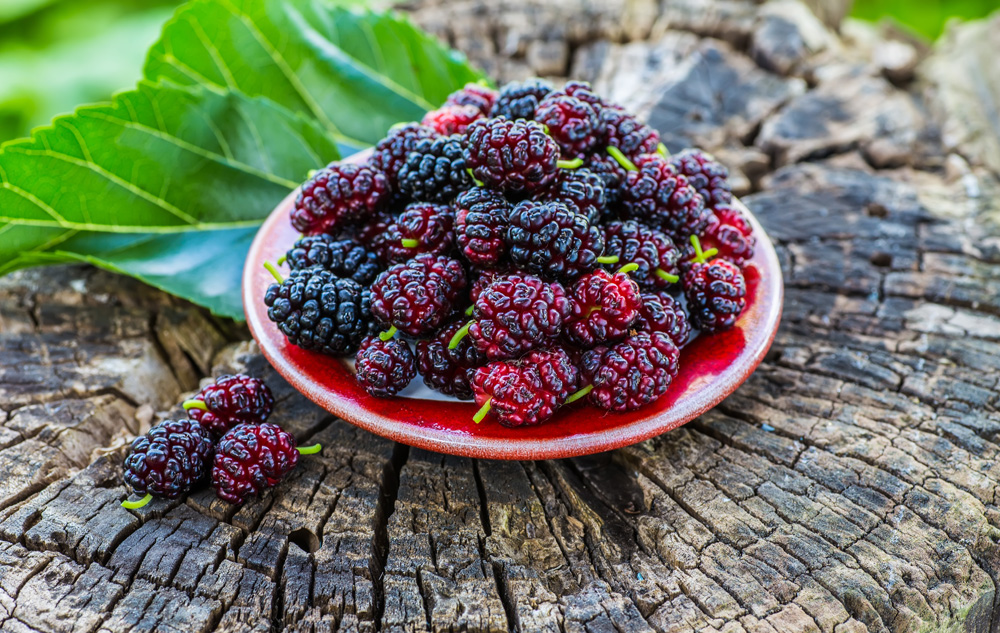
Natural Support for Parkinson’s Disease
Several herbs and edibles are helpful in preventing Parkinson’s and reducing symptoms, one of which is cinnamon. This pantry staple has been found to normalize neurotransmitter levels to improve motor function. You can also regularly eat mulberries. This delicious fruit helps to protect the brain from inflammation and slow down the disease process. Flaxseed is beneficial as well since it is a good source of antioxidants, suppresses inflammation, and has neuroprotective attributes due to significant levels of omega 3 fatty acids, alpha-linolenic acid (ALA), and lignans. Another herb to consider is skullcap (Scutellaria lateriflora) as it is a powerful antioxidant and has been found to be neuroprotective against diseases such as Alzheimer’s and Parkinson’s.
The adaptogen ashwagandha is also helpful. Not only does it shield the brain from the damaging effects of emotional, physical, and chemical stress, but it also prevents brain cell degeneration via antioxidant activity. What’s more, this powerful herb is known to improve attention, processing speed, and mental acuity.
You can find ashwagandha, along with several additional stress relieving and brain boosting herbs in my potent Anxiety & Stress Blend.
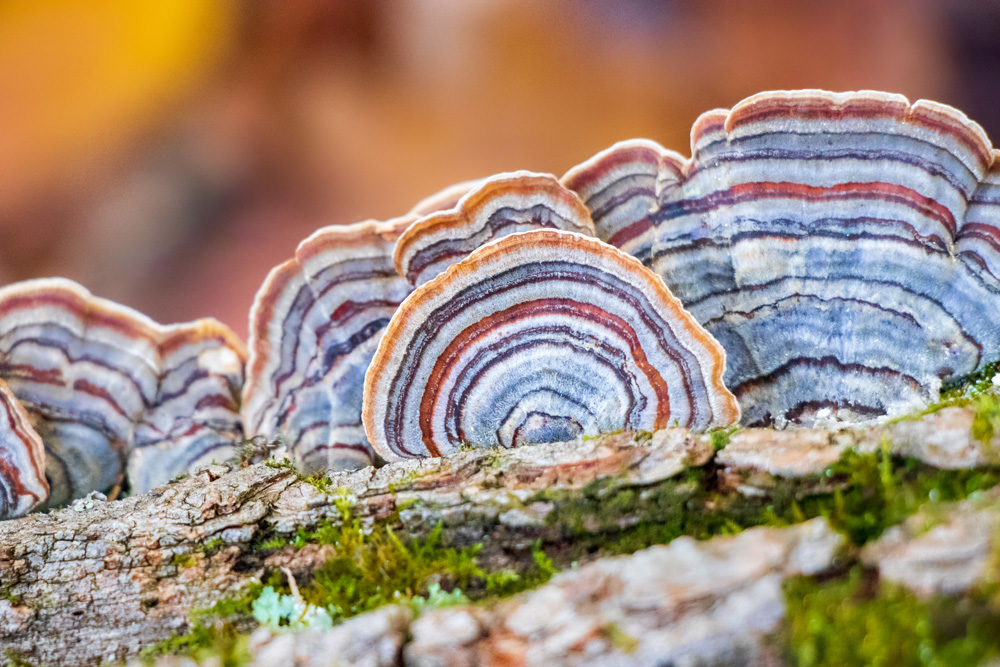
Medicinal Mushrooms and Neurodegenerative Disorders
For anyone who has followed me for a while, you know that medicinal mushrooms were crucial in my recovery from the symptoms of multiple sclerosis (MS). In fact, they are the number one reason I was able to go from being wheelchair bound to leading a vibrant, active life. I still use reishi, turkey tail, lion’s mane, and cordyceps mushrooms everyday to manage my MS. Not only do these unique mushrooms help address the neurological and inflammatory impact of MS, but they have also been found to improve other neurological disorders such as Parkinson’s disease.
A 2022 study published in Biomedicines found that neuroinflammation and oxidative stress play a significant role in neurodegenerative disorders.1 The team discovered that two fungi in particular — lion’s mane (Hericium erinaceus) and turkey tail (Trametes versicolor) — were exceptionally effective in “limit[ing] the motor and non-motor alterations characteristic of [Parkinson’s disease]” and calmed neuroinflammation as well as oxidative stress. The extracts also prevented the death of dopaminergic neurons that contribute to Parkinson’s and Huntington’s disease.
Additionally, both mushrooms were found to be exceedingly protective against traumatic brain injury induced Parkinson’s, as noted in the journal Antioxidants (Basel):
“This study suggests that PD-related molecular events may be triggered on TBI and that nutritional fungi such as Hericium erinaceus and Coriolus versicolor may be important in redox stress response mechanisms and neuroprotection, preventing the progression of neurodegenerative diseases such as PD.”4
Likewise, the mushroom also protects against the neurotoxicity associated with Parkinson’s disease.3 And another study established that lion’s mane mushroom displayed exceptional protective capacity for preventing dementia in Parkinson’s and Alzheimer’s disease by reducing oxidative stress and improving acetylcholine concentrations in the brain.2
Reishi mushroom is also outstanding for addressing neurological disorders. It has been shown to be effective in limiting damage to dopaminergic neurons, reducing oxidative stress, regulating mitochondrial function, and calming neuroinflammation.5,6,7,8
Lastly, cordyceps may be helpful as well. A study in Phytotherapy Research documented the exceptional anti-inflammatory effects of cordycepin found in the mushroom and concluded:
“The results from our review indicate that cordycepin exerts protective effects against inflammatory injury for many diseases including acute lung injury (ALI), asthma, rheumatoid arthritis, Parkinson’s disease (PD), hepatitis, atherosclerosis, and atopic dermatitis.”9
Along with its anti-inflammatory action, cordyceps also has neuroprotective and antioxidant properties that help to protect against and treat Parkinson’s disease.10,11,12
Each of these medicinal mushrooms is available in my dual-extracted, fruiting body Mushroom FOURtress bundle. If you or a loved one is at-risk for Parkinson’s or another neurodegenerative disorder, visit the apothecary today to learn more about how these herbal medicines can help improve outcomes.
I hope this information has been helpful. My very best to you!
Nicole Apelian
Nicole’s Apothecary Products in this Post
References
- Cordaro, M., Modafferi, S., D’Amico, R., Fusco, R., Genovese, T., Peritore, A. F., Gugliandolo, E., Crupi, R., Interdonato, L., Di Paola, D., Impellizzeri, D., Cuzzocrea, S., Calabrese, V., Di Paola, R., & Siracusa, R. (2022). Natural Compounds Such as Hericium erinaceus and Coriolus versicolor Modulate Neuroinflammation, Oxidative Stress and Lipoxin A4 Expression in Rotenone-Induced Parkinson’s Disease in Mice. Biomedicines, 10(10), 2505. https://doi.org/10.3390/biomedicines10102505
- Zhang, J., An, S., Hu, W., Teng, M., Wang, X., Qu, Y., Liu, Y., Yuan, Y., & Wang, D. (2016). The Neuroprotective Properties of Hericium erinaceus in Glutamate-Damaged Differentiated PC12 Cells and an Alzheimer’s Disease Mouse Model. International journal of molecular sciences, 17(11), 1810. https://doi.org/10.3390/ijms17111810
- Lee, K. F., Tung, S. Y., Teng, C. C., Shen, C. H., Hsieh, M. C., Huang, C. Y., Lee, K. C., Lee, L. Y., Chen, W. P., Chen, C. C., Huang, W. S., & Kuo, H. C. (2020). Post-Treatment with Erinacine A, a Derived Diterpenoid of H. erinaceus, Attenuates Neurotoxicity in MPTP Model of Parkinson’s Disease. Antioxidants (Basel, Switzerland), 9(2), 137. https://doi.org/10.3390/antiox9020137
- D’Amico, R., Trovato Salinaro, A., Fusco, R., Cordaro, M., Impellizzeri, D., Scuto, M., Ontario, M. L., Lo Dico, G., Cuzzocrea, S., Di Paola, R., Siracusa, R., & Calabrese, V. (2021). Hericium erinaceus and Coriolus versicolor Modulate Molecular and Biochemical Changes after Traumatic Brain Injury. Antioxidants (Basel, Switzerland), 10(6), 898. https://doi.org/10.3390/antiox10060898
Quan, Y., Ma, A., & Yang, B. (2019). Preventive and Therapeutic Effect of Ganoderma (Lingzhi) on Brain Injury. Advances in experimental medicine and biology, 1182, 159–180. https://doi.org/10.1007/978-981-32-9421-9_6 - Ren, Z. L., Wang, C. D., Wang, T., Ding, H., Zhou, M., Yang, N., Liu, Y. Y., & Chan, P. (2019). Ganoderma lucidum extract ameliorates MPTP-induced parkinsonism and protects dopaminergic neurons from oxidative stress via regulating mitochondrial function, autophagy, and apoptosis. Acta pharmacologica Sinica, 40(4), 441–450. https://doi.org/10.1038/s41401-018-0077-8
- Ren, Z., Ding, H., Zhou, M., & Chan, P. (2022). Ganoderma lucidum Modulates Inflammatory Responses following 1-Methyl-4-Phenyl-1,2,3,6-Tetrahydropyridine (MPTP) Administration in Mice. Nutrients, 14(18), 3872. https://doi.org/10.3390/nu14183872
- Ding, H., Zhou, M., Zhang, R. P., & Xu, S. L. (2010). Sheng li xue bao : [Acta physiologica Sinica], 62(6), 547–554.
- Tan, L., Song, X., Ren, Y., Wang, M., Guo, C., Guo, D., Gu, Y., Li, Y., Cao, Z., & Deng, Y. (2020). Anti-inflammatory effects of cordycepin: A review. Phytotherapy research : PTR, 10.1002/ptr.6890. Advance online publication. https://doi.org/10.1002/ptr.6890
- Cheng, C., & Zhu, X. (2019). Cordycepin mitigates MPTP-induced Parkinson’s disease through inhibiting TLR/NF-κB signaling pathway. Life sciences, 223, 120–127. https://doi.org/10.1016/j.lfs.2019.02.037
- Govindula, A., Pai, A., Baghel, S., & Mudgal, J. (2021). Molecular mechanisms of cordycepin emphasizing its potential against neuroinflammation: An update. European journal of pharmacology, 908, 174364. https://doi.org/10.1016/j.ejphar.2021.174364
- Zhang, X. L., Huang, W. M., Tang, P. C., Sun, Y., Zhang, X., Qiu, L., Yu, B. C., Zhang, X. Y., Hong, Y. X., He, Y., & Ge, X. Q. (2021). Anti-inflammatory and neuroprotective effects of natural cordycepin in rotenone-induced PD models through inhibiting Drp1-mediated mitochondrial fission. Neurotoxicology, 84, 1–13. https://doi.org/10.1016/j.neuro.2021.02.002


